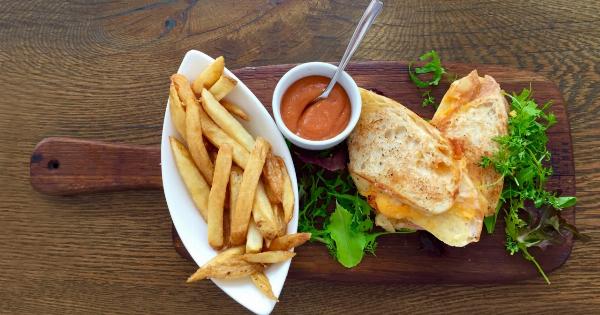When it comes to maintaining a healthy lifestyle, snacking often gets a bad reputation. Many people associate snacks with unhealthy choices that are high in calories, sugar, and fat. However, this stereotype is not entirely accurate.
While it is true that some snacks can be detrimental to your health, not all snacks are bad for you. In fact, choosing the right snacks can be an excellent way to curb hunger, boost energy levels, and provide essential nutrients to your body.
In this article, we debunk the myth that all snacks are bad for you and shed light on the types of snacks that can actually be beneficial for your overall well-being.
The Importance of Snacking
Snacking, when done right, can be a valuable component of a balanced and healthy diet. It can prevent you from overeating during meals, help maintain stable blood sugar levels, keep your metabolism active, and provide a range of essential nutrients.
The key lies in selecting the right types of snacks and consuming them in moderation.
Choosing Healthy Snacks
Now that we understand the importance of snacking, let’s dive into the different types of snacks that you can include in your diet to support your health goals.
Fruit and Vegetable Snacks
Fruits and vegetables are excellent options for healthy snacks. They are packed with vitamins, minerals, fiber, and antioxidants, making them an ideal choice for a nutritious snack.
Fresh or dried fruits, such as berries, apples, or oranges, can provide a natural source of sweetness while supplying your body with essential nutrients. Similarly, chopped vegetables like carrots, cucumbers, or bell peppers, can be paired with a nutritious dip like hummus or yogurt to create a satisfying and healthful snack.
Nuts and Seeds
Nuts and seeds are nutrient-dense snacks that offer numerous health benefits. They are a great source of healthy fats, protein, fiber, and various vitamins and minerals.
Almonds, walnuts, chia seeds, flaxseeds, and pumpkin seeds are all excellent choices for a nutritious snack. However, it’s crucial to consume them in moderation due to their high-calorie content.
Greek Yogurt
Greek yogurt is a versatile and healthy snack that can be enjoyed on its own or incorporated into various recipes. It is a rich source of protein, calcium, and probiotics, which support gut health.
Combine Greek yogurt with fresh fruits, granola, or nuts to add flavor and texture to your snack while reaping the nutritional benefits.
Whole Grain Snacks
Whole grains provide a steady release of energy, making them an excellent choice for snacks. Instead of reaching for a bag of potato chips or cookies, opt for whole grain options like whole grain crackers, popcorn, or rice cakes.
These snacks are typically lower in calories and provide more nutrients, including fiber, vitamins, and minerals, compared to their refined counterparts.
Homemade Energy Bars and Bites
If you enjoy a sweet treat but want to avoid added sugars and other unhealthy ingredients, homemade energy bars and bites are a fantastic alternative.
By making them at home, you have control over the ingredients and can customize them to fit your taste preferences. Energy bars and bites made with dates, nuts, oats, and natural nut butters can satisfy your sweet tooth while providing essential nutrients and keeping you energized throughout the day.
Cottage Cheese
Cottage cheese is an excellent source of protein that can be enjoyed as a snack. It is low in calories and carbohydrates while providing a good dose of calcium and other essential nutrients.
Top cottage cheese with fresh fruits or a drizzle of honey to enhance the taste while keeping it healthy.
Hard-Boiled Eggs
Hard-boiled eggs are a convenient and nutritious snack option. They are an excellent source of protein, healthy fats, and important vitamins and minerals.
Hard-boiled eggs can be easily prepared in advance and enjoyed on the go, making them an ideal snack choice for busy individuals.
Choosing Snacks Mindfully
While all the above-mentioned snacks can be part of a healthy diet, it’s important to practice mindfulness and moderation.
Regardless of the health benefits of a particular snack, consuming it in excess can lead to weight gain and hinder your overall health goals. Portion control is key when it comes to snacking, and it’s essential to listen to your body’s hunger and fullness cues.
Conclusion
Contrary to popular belief, not all snacks are bad for you. By choosing nutrient-dense snacks and consuming them in moderation, you can enjoy a variety of health benefits.
Incorporating fruits, vegetables, nuts, seeds, Greek yogurt, whole grain options, homemade energy bars, cottage cheese, and hard-boiled eggs into your snack routine can help support your overall well-being. Remember to listen to your body’s needs and make mindful choices when it comes to snacking, and you’ll discover that snacks can indeed be a healthy and enjoyable part of your diet!.



























